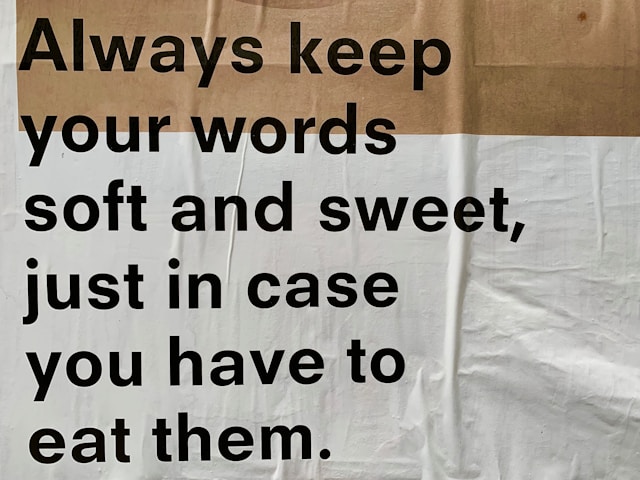75 Encouragement Phrases to Inspire and Motivate Anyone
- Key Takeaways
- What Are Encouragement Phrases?
- The Psychology of Encouragement
- Crafting The Right Words
- Encouraging Words for Everyday Life
- The Digital Dilemma
- Beyond Words
- Conclusion
- Frequently Asked Questions

Key Takeaways
- Encouragement phrases are the most powerful vehicles for instilling hope, confidence, and resilience making them especially effective weapons to forge emotional bonds across cultures and relationships.
- The power of encouragement is situational it matters when, where and how genuine it is. Custom and heartfelt words build true encouragement, while generic phrases are surface and can sound impersonal.
- Giving encouragement can be as good for you as receiving it, reducing stress in the recipient and increasing emotional satisfaction and growth in the giver.
- In writing encouragement, first acknowledge what the person is doing, then acknowledge how they feel, and then avoid the cliche and try to make the message personal and relatable.
- Adding encouragement to your daily interactions with friends, partners, colleagues or yourself can do wonders for your relationship and your life.
- In online communication, transparency, honesty, and innovative writing are key to preserving the efficacy of encouragement, whereas physical gestures of support and attentive listening can compliment encouraging language beyond words.
I think encouragement phrases provide straightforward words that empower and build confidence. We employ them at work, school and in our home lives to uplift spirits and ignite motivation.
Phrases like ‘You did good’ or ‘Don’t stop‘ work for most ages and environments. When you’ve got the right words, it can transform how someone is approaching a difficult challenge or day.
The following sections will demonstrate additional applications and advice.

What Are Encouragement Phrases?
They’re the brief bits of text or quotes that ignite optimism, provide comfort, and inspire individuals during both minor and significant obstacles. These encouragement phrases are handy tools for forming emotional connections and making speech empathetic. Their worth is universal and they can be customized to suit almost any culture, language or personality.
In the office or in our lives, encouragement phrases get others through, forge ahead, or just feel less isolated. These words pack their power in their ability to redirect your attention from defeat to opportunity often with minimal verbiage like “Do one brave thing today” or “You’ll always miss 100% of the shots you don’t take.
1. Their Purpose
The purpose of encouragement phrases is to cheer someone up particularly when they’re going through a rough patch. These words can bolster confidence and remind individuals of their capabilities, even when imposter syndrome starts to seep in. Something as straightforward as “Fall seven times, stand up eight” can inspire you to persist, regardless of how many times you get knocked down.
These phrases help foster an environment where growth is possible. When you say to someone, ‘A year from now you might regret not having started today,’ it can motivate micro-steps towards progress. They cultivate grit, showing individuals to persist and to view failure not as a termination, but rather as a part of the learning process.
With encouragement phrases I can do this day one can condition their mind to remain optimistic and recover more quickly from setbacks.
2. Their Power
They’re magic words, phrases that can shift the way we think and feel. When someone hears “Success is not final, failure is not fatal: it is the courage to continue that counts,” it may give them the push to continue after a setback. Encouragement phrases have a direct impact on your mood and mental health, helping to swap out pessimism for positivity.
This impact can ripple. A simple statement like “What lies behind us and what lies before us are tiny matters compared to what lies within us” can encourage not only one person, but anyone who listens, spreading a wave of encouragement. Encouragement is recalled far beyond the moment it’s uttered, molding how people perceive themselves and their prospects for success.
3. Their Nuance
How you encourage is as important as the words. Not every phrase suits every moment or individual. It’s crucial to feel what a person needs to hear. Phrases such as “Find one thing in your life today” may resonate with someone stressed out, whereas other people might require reminders such as “I’m enough.
Body language, eye contact, and tone all lend gravity to the message. A soft, honest “Courage does not always roar” speaks volumes if it suits the occasion. Authentic encouragement comes from being present, listening and picking words that feel authentic to giver and receiver.
4. Their Timing
When encouragement is given makes a big difference. Thoughtfully deployed words like, “In the depth of winter, I finally learned that within me there lay an invincible summer” can offer solace in the throes of suffering. Occasionally, the most potent encouragement is impromptu delivered on the spur of the moment when it’s most needed.
You need to be tuned in and aware of when a friend, coworker or family member could use a pick-me-up. Even a tiny phrase can shift a lot if it’s uttered just when it’s needed.

The Psychology of Encouragement
Encouragement is a social transaction more complex than praise or gratitude. Unlike praise, which is about accomplishment, encouragement is about the person, independent of accomplishment. It’s employed in everyday life among peers, co-workers, relatives and even in the workplace.
Though typically thought to only affect motivation, verbal encouragement actually alters behavior, cognition, and even physical performance. Research indicates that athletes who receive encouraging language from coaches perform better, in body and in mind. These effects extend beyond sports.
Encouragement can alter beliefs, foster skills, and even aid plants’ growth, as experiments have shown.
- Reduces stress and anxiety
- Boosts motivation and persistence
- Increases sense of belonging and support
- Strengthens trust and social bonds
- Enhances emotional resilience
- Promotes a growth mindset
- Fosters insight and self-awareness
For The Giver
There’s an emotional payoff to encouraging people that’s difficult to discover in other contexts. When you provide encouragement, you frequently experience a greater connection and fulfillment. This is motivated by observing transformation in another individual via your influence.
Helping develops your own value to the tribe. Providing encouragement can strengthen you, as well. By being there for others, you exercise patience and learn to deal with disappointments more serenely.
Your resilience deepens when you witness first-hand the real impact your words can have to inspire actual change in others’ lives. There’s an opportunity for your own development as well.
When you encourage someone else you are literally stepping out of your own head and trying to think about what someone else needs. That can increase your empathy and interpersonal skills. It sensitizes you to the psychology of encouragement.
Empathy is key here. Therapy research reveals that empathy is a predictor of client success. The more you know how someone feels, the more effectively your encouragement works.
It’s not about trite, hollow platitudes it’s about perspective taking and word selection aimed at what really assists.
For The Receiver
Encouragement phrases can make you feel like you’re part of. When they say, ‘You’ve got this’ or ‘I believe in you’, it’s encouragement that doesn’t sound phony.
This encouragement can boost your confidence. A basic, ‘Go ahead, I notice you trying,’ can keep you with things even as they get tough.
Encouragement is what helps you battle doubt and fear. It intervenes when your own voice is quavering. Phrases such as, “It’s all right to fail, just keep at it,” assist in transcending the paralysis of fear of failure.
It cultivates a growth mindset. If you hear, “You can learn from this,” you’re more likely to think you can improve. That mindset influences the way you view your talents and smarts, not as static, but as things you can cultivate.
Crafting The Right Words
Words of encouragement can define how we think, behave, and confront challenges. The right words, carefully chosen, help them develop habits, remain resilient, and concentrate on what they can control. Sprinkles like, “Fall seven times, stand up eight,” demonstrate how a concise saying can ignite power and optimism, particularly in the face of adversity.
What matters here is the power of these words to resonate how well they align with the listener’s circumstances and mindset. The secret to making a real difference is making encouragement personal, specific, and authentic.
Personalize
A phrase hits harder when it matches the individual’s actual narrative. Instead of general words, refer to specifics from their life. Say, ”You’ve always been a rock when work gets stressful,” not, “You’re killing it!” Employ their name, as well. This draws the distinction between a general message and one that truly hits home for them.
Common ground or familiar battles can direct your speech. For instance, following a challenging assignment, “Marie, you managed that hard deadline last month with such delicacy. That demonstrates true gumption.” This makes the encouragement feel organic, not artificial. Each one has their own journey, aligning your words with their path allows your motivation to land.
Acknowledge
Observe the attempt, not merely the result. ‘I know how much effort you put into mastering that new skill’ says more than ‘Way to go.’ This type of recognition demonstrates that you value them for their process, not just the outcome.
Real strengths patience, problem-solving, kindness, when you notice and point them out it helps develop confidence. They will persevere when they feel noticed and appreciated. Even if someone stumbles, something simple such as, “Your persistence through these hard times inspires me,” can rekindle their motivation.
Small wins matter, as well, and labeling them makes people recognize their own momentum.
Validate
Validation is about telling somebody that their feelings count. Listening, “It’s okay to be scared of something new,” can soothe anxiety and help a person realize that they’re not isolated.
Small statements such as, ‘It’s okay to feel stuck once in a while,’ or ‘Most of us deal with this,’ will assist people be free and open with you. Such trust creates deeper connections and gets others to open up about their needs.
When feelings are embraced, it’s less likely for you to spiral into self-loathing or guilt and more likely to stay on the path toward forward progress.
Avoid Clichés
Clichés like “Don’t worry, it’ll work out” can ring hollow. They see these lines and gloss over them, or worse, feel brushed off. Try substituting honest, direct words, such as, ‘I know this is hard for you, and I’m here.’
To craft something new, even if simple, demonstrates that you care enough to think about what fits. For instance, “Just for today, do one brave thing,” provides an actionable step. Authentic assistance, not a canned speech, creates confidence and moves individuals to act.
Even the tiniest measure of being real and present with your words can transform encouragement into real change.
Encouraging Words for Everyday Life
Encouragement phrases are a quick, easy and powerful way to foster strong connections and raise spirits–whether in friendship, family, work, or personal development. These words frame how we experience ourselves, manage our stress, and maintain our momentum. They can be as simple as “You’ve got this” or as insightful as “Your hard work is making a difference.
They work for all kinds of relationships and situations, from daily check-ins to big life moments. One little pithy phrase can turn someone’s day and perspective, proving that at least in this case, little things really do count.
- “You can do it.”
- “I believe in you.”
- “Your effort is noticed.”
- “Keep moving forward.”
- “Thank you for being there.”
- “Your ideas matter.”
- “We’ll get through this together.”
- “I am proud of you.”
- “You inspire me.”
- “Don’t give up.”
For Friends
Commemorating friendship is not simply a matter of having a good time. Expressive and thoughtful gratitude such as “Thanks for always being there” or “I value our time together” can do wonders to help friends feel seen and appreciated. Whether it’s sharing memories or inside jokes, it reminds friends why their bond matters.
Thanks with a note saying “I appreciate your support” or “you make hard days lighter.” These words need not be lofty; the important thing is regularity. Reminding friends of their strengths ’you’re so good with challenges’ or ‘your kindness really impacts me’ helps them recognize their own worth.
It can strengthen trust and loyalty across time. Consistent encouragement nurtures friendships, which makes it easier to support one another through tough times and to cheer each other on through victories.
For Partners
Encouragement Phrase | Context |
|---|---|
“I admire your drive.” | When recognizing effort |
“We’re a strong team.” | Facing challenges together |
“Your dreams matter to me.” | Supporting aspirations |
“Thank you for your care.” | Everyday appreciation |
Phrases like, ‘You bounce back so well,’ for example, convey that you recognize a partner’s grit and personal development. Backing each other’s ambitions ‘I believe in your dreams’ establishes a basis of faith.
Encouragement in your love life isn’t just about compliments, it’s about connection and confidence that you can both navigate life’s highs and lows.
For Colleagues
Encouragement Phrase | Context |
|---|---|
“Your work is valued.” | After project completion |
“Great problem-solving today.” | During teamwork |
“Thanks for your commitment.” | Recognizing dedication |
“Let’s tackle this together.” | Facing tasks jointly |
Acknowledging a co-worker’s effort, even with a simple ‘Thanks for assisting,’ can boost morale and inspire future cooperation. When teams employ encouragement frequently, the workspace becomes a more open and positive place.
Such a morale shot can cause increased productivity and a sense of belonging. A workplace culture of encouragement keeps everyone motivated and tenacious, particularly when confronted with deadlines or difficult challenges.
For Yourself
- Carve out a moment every day to practice self-encouragement “I got this” or “I grow from my errors.”
- Select phrases that suit your objectives, such as ‘I am improving’ or ‘I will attempt once more tomorrow’.
- Record your accomplishments great and small and read them back when you need a boost.
- Whisper empowering words into your ear, like “Courage” or “Perseverance,” when the going gets rough.
Customized motivation is an instrument for cultivating confidence and perseverance. Recognizing you’re still making progress even on hard days helps prevent your motivation from sagging.
Self-encouragement shifts you from a mindset of fragility to one of growth, enabling you to continue forward in the face of setbacks.
The Digital Dilemma
Digital communication informs the way people support, but it has its limitations. The quickness and convenience of shooting off messages, pings, and pep-talk phrases makes it alluring to rely on text as our primary means of connection. Yet, the overload of messages, the pressure for quick responses and the potential for digital noise can dilute the power of well-timed, encouraging words.
As students and professionals save conversations and notes and reminders directly to devices, meaning gets blurred in the information tsunami. Throw in multi-screen distraction and push notifications, and your environment is primed for anxiety, lost relationships and fraying sanity. The trick is to make encouragement count, particularly when a note can get lost, misconstrued, or ignored in the din.
Authenticity
Real inspiration in the virtual world is vital for maintaining strong relationships. People can quickly sense when words lack sincerity or sound canned. When a message resonates with honesty, it shines through even the most jammed inbox or group chat. Taking the time to insert a specific example or personal anecdote makes the message more relatable and offers positive reinforcement.
For instance, instead of the blanket ‘Good job,’ ‘I appreciated your focus on detail on that report, it really made a difference’ feels more personal and genuine. Trust goes a long way. When someone realizes that your words are honest and considered, they’ll be more apt to feel aided than condescended to.
This is critical when screens put distance between us and restrict nonverbal signals. A heartfelt note, even if short, can build continuous encouragement and help reinforce virtual connections down the road. Putting in a quick personal anecdote or reminiscing about your mutual history assists as well.
For example, ‘I recall how you dealt with last semester’s assignment. That grit will help now,” resonates more than a shallow cheer. It’s this sort of honesty that makes motivation linger, even as electronic communications continue to amass.
Misinterpretation
Miscommunication occurs frequently with digital booing since tone doesn’t always cross well in text. Without the advantage of face or voice, even the best-intentioned words can be misunderstood. For instance, “You did your best” can be either encouraging or condescending, depending on its intonation.
Clarity counts. Short, clear words are at less risk of misinterpretation. A little emoji or a simple visual can go a long way to depicting emotion and intent. A thumbs-up, a smile, or a quick audio note can transform a flat phrase into a warm display of affection.
Follow-up counts, as well. When you can, checking in with a call or voice message can dissipate uncertainty and demonstrate genuine concern. This is crucial to establishing trust and ensuring that the encouragement doesn’t get lost in the hustle of digital life.
Beyond Words
Encouragement doesn’t always have to be verbal its true power can be in what is demonstrated instead. ‘Beyond words’ captures moments indelible to memory a stirring sunrise, a profound sense of belonging.
As Albert Einstein observed, ‘What lies behind us and what lies before us are tiny matters compared to what lies within us. This highlights how comprehension and communication tend to transcend language. Most discover that art, music or even a silent beat can communicate solidarity or affection in incommunicable ways.
Sometimes a kind glance or helping hand says more than the longest speech. Sometimes, just sitting with someone in silence is more soothing than any words. Encouragement is demonstrated by action and by presence and in the little things we do every day.
Active Listening
Active listening is part of real support. Observing attentively allows us to perceive what a person requires, prior to their request. When we listen we hear more than words.
Tone, body language, and pauses all provide clues. That’s good because it builds trust, and it demonstrates that you respect the other person’s feelings and story.
By asking open ended questions, we allow them to reveal more of their thinking or concerns. A curt ‘How ya doing with your new project?’ can spring real talk, not just a quick answer. These conversations frequently foster stronger connections and improved assistance.
Empathy is at the center of listening. When we mirror what we listen and demonstrate that we listen, encouragement is more than just a habit. It becomes something genuine and timeless.
To listen thus is not to stand by for our turn to talk, but to labor to apprehend the other’s perspective.
Simple Actions
Little things mean a lot. A little love note or a favorite snack or a quick text to say hi can go a long way. These acts demonstrate that the support is more than words, it’s tangible concern.
Being there counts. Sometimes, just sitting with or walking with someone is support enough. When a friend or colleague achieves a goal, even a modest one, pausing to observe and celebrate their accomplishment builds their power and pride.
Small things a door held open, spontaneous assistance demonstrate that we notice others and care about them. Those times stick with us longer than the great orations and lengthy conversations.
Celebrating the wins big or small uplifts others. A brief ‘bravo’ or joining in someone’s happiness can make them feel noticed. These moments, demonstrated in action, are what make encouragement memorable.
Conclusion
Encouragement is most effective in little, tangible ways day by day. Phrases such as ‘You performed excellently’, ‘Persist’ or ‘I observe your dedication’ assist individuals in feeling acknowledged and understood. When things are hard, a little bit of encouragement can really nudge someone forward. Whether it’s a brief note on the web or a heartening word at the office, these small acts of encouragement can lift spirits and foster loyalty. Everyone, from every background, desires to be appreciated. To motivate others, speak with words that resonate in the moment and are authentic to your own voice. Whether you’re trying to motivate a rockstar team, support a buddy, or just promote some positivity, begin with authentic, basic phrases. Give it a shot literally witness what shifts. Your voice can make a difference.
Frequently Asked Questions
What are encouragement phrases?
Encouragement phrases are uplifting statements that provide emotional support, motivation, or reassurance, helping individuals feel appreciated and courageous in facing hardships.
Why are encouragement phrases important?
Encouragement quotes elevate confidence and inspiration, serving as positive affirmations that build mental health, empower people to conquer challenges, and foster optimism at home or in the office.
How do I choose the right encouragement phrase?
Select uplifting phrases that resonate with your loved one’s circumstance and mood, employing heartfelt language to provide positive support and meaningful encouragement.
Can encouragement phrases help with stress?
Okay, so encouraging phrases provide emotional support and de-stress. Uplifting messages show them you care and that they’re not alone, helping them focus on what they CAN do when the chips are down.
Are digital encouragement messages effective?
Digital encouragement phrases, like positive affirmations, work effectively. When carefully composed, they provide emotional support over the miles and keep relationships grounded and vibrant, even virtually.
How often should I use encouragement phrases?
Employ encouraging phrases and positive affirmations liberally, but sincerely, as they foster strong relationships and make people feel cared for in the moment.
Can encouragement go beyond words?
Encouragement is not just words it’s actions, such as listening and helping your loved one, or just being there. Pairing uplifting phrases with deliberate deeds amplifies your affirmative influence.


Login and write down your comment.
Login my OpenCart Account